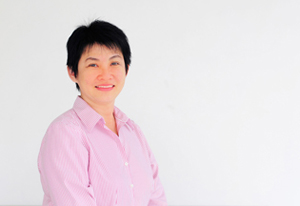Young Children’s Voices in Mathematical Problem Solving
Contributed by Dr Ho Siew Yin and Sng Wei Qin Abbie, from NTUC First Campus, for SingTeach Virtual […]
Read More
When a team of Physics teachers at Siglap Secondary School wanted to help their students understand the concept of “friction” better, they turned to lesson study. They started by trying to understanding how their students learned.
 To better understand how Secondary 3 students learn the concept of “friction”, our professional learning community team decided to embark on lesson study.
To better understand how Secondary 3 students learn the concept of “friction”, our professional learning community team decided to embark on lesson study.
Apart from the usual qualitative data derived from students’ work, observers’ notes and classroom discourse during the lesson, we added something else: teacher observers had 10 minutes to interact with the students at the end of the lesson.
Students’ own explanations of what they were doing can give us a better understanding of what learning means to them and how they go about it. This provides us with rich perspectives for evaluating the lesson and instructional approaches.
We paid careful attention to the students’ voices, that is, student conversations during the lesson, student–observer dialogue after the lesson, and students’ work and reflections on their work.
In lesson study terminology, these student voices enable teachers to see instruction through the eyes of the students (Lewis, Takahashi, Murata, & King, 2003). We can then make improvements in the learning activities and environment to enhance students’ learning experiences.
A phenomenographic approach was used as the framework for this study. This involves looking at a particular phenomenon – in this case, the learning experienced by the students – and seeking “an empathetic understanding of what is involved in student learning derived from students’ descriptions of what learning means to them” (Marton, Hounsell, & Entwistle, 1984, p. 13).
We looked at three aspects of student learning:
Using Marton’s conceptions of learning as a basis (Marton, Dall’Alba, & Beaty, 1993), observers probed for levels of processing – for evidence of “deep and surface approaches to learning” (Marton & Saljo, 1976).
At the planning stage, as we thought through the probable misconceptions students might have, we realized that these were based on our own experience of learning or teaching the topic. We needed to unpack students’ prior knowledge and understand why they write or say something.
This led us to incorporate a Predict-Observe-Explain (POE) cycle into the lesson. The use of experiential trigger activities and investigative learning tasks in the POE cycle provided opportunities to anticipate the difficulties students might face and hence scaffold the inquiry process.
During the lesson, observers noted that the POE cycle encouraged students to vocalize their thinking by asking questions or clarifying. Students were guided to explore and correct their prior knowledge and move into deeper levels of processing.
It also helped students to overcome their fear of saying something wrong or making mistakes. This allowed the teacher to work on students’ misconceptions, instead of simply dismissing incorrect answers as “wrong”.
We found that different learning outcomes are achieved when students are engaged at different levels of processing.
A key outcome of this study was the change in students’ conceptions of learning, from surface level to deeper learning. When teachers provided opportunities for students to make sense of what they were learning, they tended to engage in deeper levels of processing and attain deeper understanding.
Clearly, the way teachers teach and facilitate student learning affects not just what students learn but also the quality of that learning.
The way students make sense of what they are learning plays a big part in their ability to succeed as students, and as teachers, we hold the key to making that happen. As teachers, we need to:
bring about changes in both our students’ and our own conceptions of learning;
explore and embrace instructional approaches that build on students’ existing conceptions to bring them to higher levels of understanding; and
understand what other factors contribute to the quality of students’ understanding.
Lewis, C., Takahashi, A., Murata, A., & King, E. (2003, April). Developing “the eyes to see students”: Data collection during lesson study. Paper presented at the National Council of Teachers of Mathematics pre-session. Retrieved from https://www.lessonresearch.net/NCTMa2003.pdf
Marton, F., Dall’Alba, G., & Beaty, E. (1993). Conceptions of learning. International Journal of Educational Research, 19 , 277–300.
Marton, F., Hounsell, D., & Entwistle, N. (Eds.). (1984). The experience of learning. Edinburgh, Scotland: Scottish Academic Press.
Marton, F., & Saljo, R. (1976). On qualitative differences in learning: Outcome and process. British Journal of Educational Psychology, 46, 4–11.